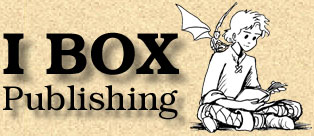|
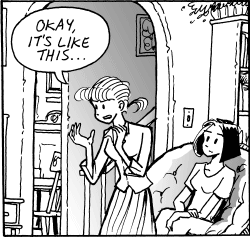
Introducing The New and Sparkling World of eReaders!
iPads, Kindles, Clone Tablets, eInk Readers, Smart Phones, and every other thin-screen, pocketbook-sized gadget. Welcome to Star Trek. We're here. It's happening. And naturally, this interests me quite a bit.
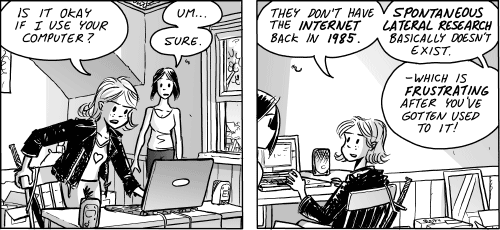 As it happens, I am right now in the process of breaking down my comics project, Stardrop into single panels which can re-organize themselves depending on the screen size they happen to be read on. (Via basic ePub formatting, which is rather like a stripped down version of HTML.)
As it happens, I am right now in the process of breaking down my comics project, Stardrop into single panels which can re-organize themselves depending on the screen size they happen to be read on. (Via basic ePub formatting, which is rather like a stripped down version of HTML.)
I deliberately set a creative boundary when I began drawing Stardrop, requiring of myself that all the panels (or 99% of them, anyway) be square and optimized for viewing on e-reader screens. -Squares are wonderful this way; they can stack and re-organize nicely so that you can get full page layouts on a big screen, or with the same file, they can display happily one panel at a time, which is perfect if you happen to be reading on a smaller gadget. The prototypes I've spun up work and read surprisingly well, and I quickly forget the medium itself and just find myself in Ashelle's world. So far, so good. . .
But I've held off for a loooong time in releasing digital versions of my books because the distribution and the devices and payment structures, the market as a whole, hadn't crystalized. In fact, it looked like one giant lumbering mess, at least from my publisher's viewpoint. Now, however, that's all rapidly changing. . .
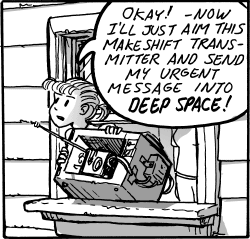
At the moment, I'm just wading into the research on the rights side of the issue. And, no, I'm not talking about the murky world of digital rights management (DRM). Rather, the thing I'm curious about is. . , revenue sharing. How does the pie get divided? Who provides which services? Who is deserving of what? (Or thinks they are deserving). And boy! At the moment, the answers to those questions are all over the map!
If you want to get your work on Apple's iTunes store, they'll want 30% and an IRS number, (even if you're not an American). Second tier publishing companies such as Ingram and LuLu work in partnership with Apple to offer what they call, 'aggregation', where they provide a block of graphic novels and books and market them to the iPad customer base using the Apple iTunes system. After sales are finalized, Apple takes a cut and pays Ingram or LuLu or whoever, then they pay the publisher. (Ingram takes a bit over 50% of the remaining pie, and LuLu between 10 and 20% depending on which page on their website you read.)
Amazon has its own little fiefdom, (surrounded by swamps and walls), and its own ways to cut up the pie on digital works. Within fairly short order, the revenue from a comic book sale dwindles into very little for the people doing the actual work of writing and drawing. -Keeping in mind that Apple and everybody else is not in the business of traditional publishing; they aren't printing or shipping books, (notwithstnading print on demand services, which are a whole other ball game), and in many cases, the creator pays for bandwidth. Frankly, the whole thing looks kind of Wild West to me.
Then, and perhaps more importantly, there is the issue of exclusivity. Apple, for instance, if you want to distribute through their iTunes/App stores, will only apparently allow you to do so if you agree not to also sell your own work on your own website.*** That sort of thing makes my neck hairs stand on end. Amazon is pulling similar tricks.
|
***Correction: Turns out the exclusivity aspect of Apple's contract is related only to eBook files created using the Apple layout package. That is, if you use their layout software, their contract terms forbid the files it creates on from being sold anywhere other than through the Apple iBookstore. -Thanks to Steve Crooks for writing in with this clarification. |
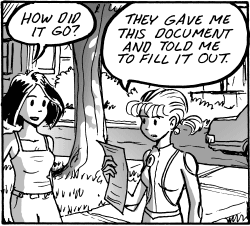
I remember the comic book distributor wars which tanked the whole industry in the 90's, and the battles before that for creator rights. It seems the stew pot is heating up once again and the creators are again being handed the short end of the stick, all while the industry itself wholly depends on their existence and continued labors. "The more things change, the more things stay the same."
It's going to be an interesting journey.
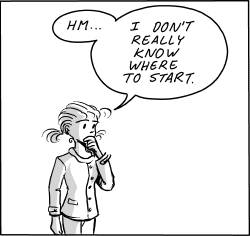
So for me, this is an experiment. Stardrop will be the litmus test. The first stick in the water, and I'll be learning as much as I can from the process. -Cuz' I've also got a bunch of new Jenny Mysterious material starting to pile up in my outbox, and T&K is in the process of being colored, with new pages also stacking up. . .
Yes indeed! Interesting times ahead!
Yet while there are devils in the details, and battling monolithic corporations, I can also see some lovely gaps in the brickwork. What fun! This is a very exciting time; a new golden age where many possibilities are floating all about in flux. New ways to reach readers. New ways to share stories. It's all rather exciting!
So as I research this, I will post my findings here. If you happen to be in the self-publishing e-book world yourself, and have comments or discoveries you'd like to share, please send them along. If you're just learning the ropes and perhaps have an eBook of your own you're hoping to market, hopefully my explorations into the subject will be of use to you. Come back next week for Comics in the New Media, Part II: Apple, Savior of Publishing, or Jobs' Con Job?
Cheers!
-Mark Oakley
|
